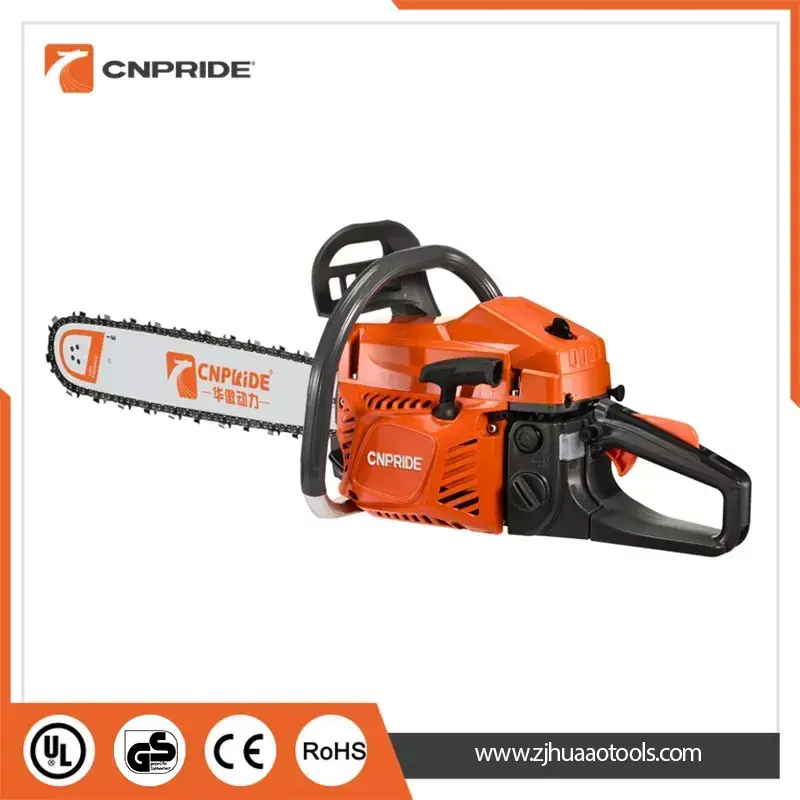
The gasoline chainsaw machine industry, a cornerstone in both forestry and construction sectors, continues to play a pivotal role in various applications ranging from logging and tree felling to pruning and clearing. This industry has seen significant advancements over the years, with manufacturers constantly striving to improve the efficiency, durability, and safety of their products.
In recent years, the demand for gasoline chainsaws has surged, driven by increased activities in forestry and construction. Forestry operations, particularly in regions with dense vegetation, heavily rely on chainsaws for harvesting timber and managing forests. The construction industry also benefits from chainsaws, especially during site preparation and debris clearing. The versatility of chainsaws makes them indispensable tools for professionals in these industries.

The market for gasoline chainsaws is segmented into various product categories, including handheld chainsaws, backpack chainsaws, and mini chainsaws. Each category caters to different needs and working conditions. For instance, handheld chainsaws are preferred for general use and are widely used by individuals and small teams. Backpack chainsaws, on the other hand, offer greater mobility and are ideal for larger operations and difficult terrains. Mini chainsaws are lighter and more compact, making them suitable for pruning and detailed work.
Manufacturers in the gasoline chainsaw industry are focusing on innovation to meet the evolving needs of customers. Key trends include the development of more powerful and fuel-efficient engines, improved ergonomics, and enhanced safety features. Additionally, there is a growing emphasis on reducing emissions and promoting environmental sustainability. This is evident in the increasing adoption of electric and hybrid chainsaws, which offer lower noise levels and reduced pollution.
The global market for gasoline chainsaws is expected to grow in the coming years, driven by factors such as urbanization, infrastructure development, and increasing environmental awareness. However, the industry also faces challenges, including stringent safety regulations, competition from alternative tools, and the need for continuous innovation to stay ahead of market demands.
In conclusion, the gasoline chainsaw machine industry remains an essential sector in forestry and construction, with ongoing technological advancements and market growth providing opportunities for both manufacturers and end-users. As the industry continues to evolve, it is crucial to balance innovation with safety and environmental considerations to ensure the sustained success of gasoline chainsaws in the future.